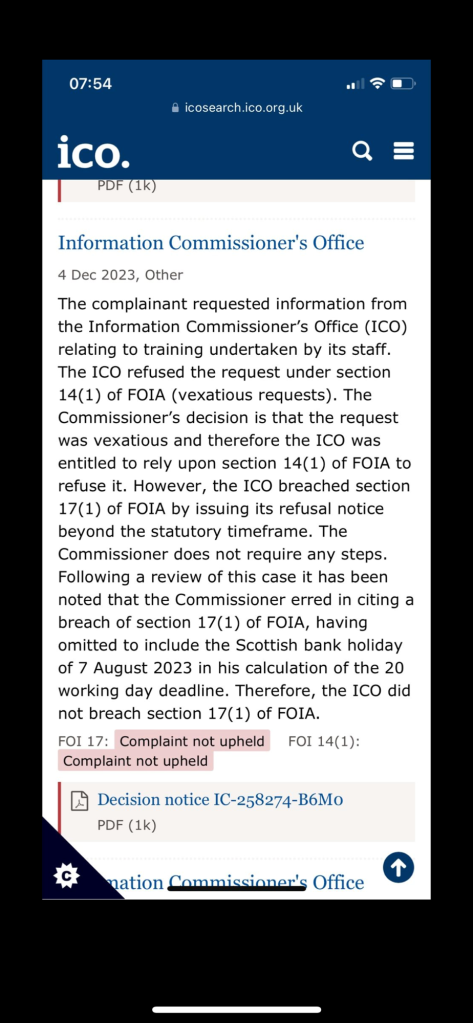The Information Commissioner’s Office has fined the CENTRAL YOUNG MEN’S CHRISTIAN ASSOCIATION (YMCA) of London £7500.
The penalty notice is not published at the time of writing (nor anything else yet on the ICO website), although the fine is said to have already been paid, and the press release issued by the ICO says the fine was issued for “a data breach where emails intended for those on a HIV support programme were sent to 264 email addresses using CC instead of BCC, revealing the email addresses to all recipients. This resulted in 166 people being identifiable or potentially identifiable”.
The press release also says that the fine was reduced from an initially-recommended £300,000, “in line with the ICO’s public sector approach”. When I queried the rather obvious point that a charity is not a public authority, an ICO spokesman initially told me that “as Central YMCA is a charity that does a lot of good work, they engaged with us in good faith after the incident happened, recognised their mistake immediately and have made amends to their processing activities and they paid the fine in full straight away, we applied the spirit of the public sector approach to them even though they’re not strictly a public sector body”.
This led to a further follow-up query from me because as a matter of logic and timing, how could the fact that a controller “paid the fine in full straight away” be a mitigating factor in reducing the amount of the fine to be paid? The further response was “The point was that they engaged fully and subsequently paid the fine in full, thus confirming our position that they were engaging and taking the breach seriously. The calculation comes before the payment which has no bearing on the assessed amount.”
I’m not quite sure what to make of this. Can any controller which “does a lot of good work”, engages with the ICO in good faith and remedies processing activities also benefit from a 3900% decrease in fine from an originally-recommended sum? What does “a lot of good work” mean? Is it something only charities do? What about private companies with a strong ESG ethos, or who make significant charitable contributions?
[this post was originally published on my LinkedIn page.]
The views in this post (and indeed most posts on this blog) are my personal ones, and do not represent the views of any organisation I am involved with.




